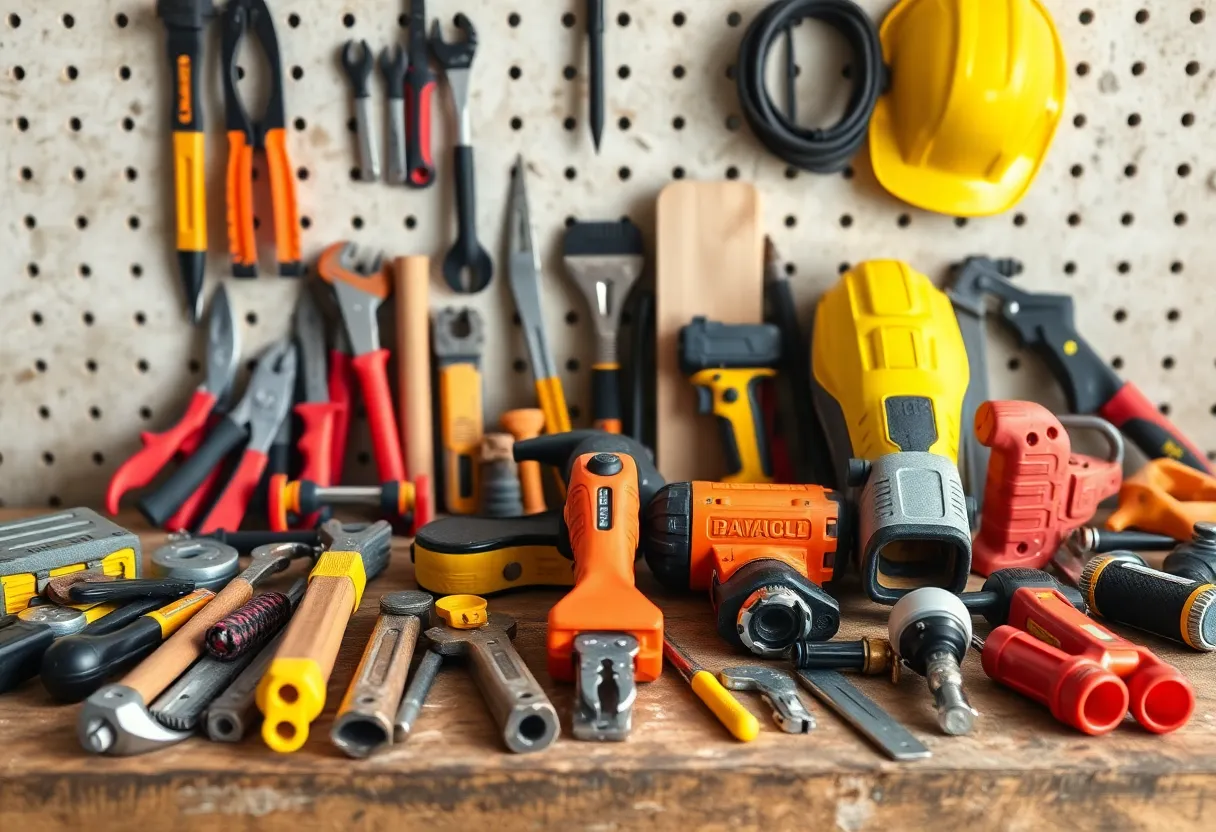What Are the Essential Tools Every DIY Home Builder Should Have?
Introduction
Embarking on a home building or renovation project as a DIY enthusiast demands more than just motivation and vision. Success hinges on having the correct tools that enable precision, safety, and efficiency. This article delineates the most essential tools every DIY home builder should possess, highlighting their functionalities and importance for various tasks.
Core Hand Tools for Versatile Use
Measuring and Layout Tools
Accurate measurements underpin all successful projects. Tape measures are fundamental, with lengths generally ranging from 16 to 25 feet, providing flexibility for most tasks. Carpenter’s squares ensure precise right angles, vital when framing and aligning components. Level tools help maintain vertical and horizontal accuracy, especially important in hanging doors, windows, or installing cabinetry.
Cutting and Shaping Instruments
Proper cutting tools facilitate clean, accurate cuts essential for fit and finish. Hand saws for wood, with various teeth configurations for different cut types, are versatile and straightforward. Utility knives serve numerous purposes, from scoring drywall to trimming materials. Additionally, hacksaws can cut metal pipes and other hard materials.
Fastening Tools
Securing components requires reliable fastening tools. Hammer remains a classic, useful for driving nails and minor demolition. Screwdrivers, both Phillips and flat-head, are necessary for driving screws. For more efficiency, a manual or powered drill with a variety of bits allows drilling holes and driving screws quickly.
Power Tools to Enhance Efficiency
Drills and Drivers
A cordless drill/driver is perhaps the most indispensable power tool. It combines drilling and screwing functions, saving significant time. Models with adjustable speed and torque provide versatility for different materials and tasks.
Saws for Rapid Cutting
The circular saw excels in making straight cuts in plywood, framing lumber, and other sheet goods. For more detailed work, a jigsaw allows curved cuts and intricate patterns. Reciprocating saws handle demolition tasks, such as removing old framing or drywall.
Grinders and Sanders
Power grinders are crucial for cutting, grinding, or polishing metal and masonry surfaces. Random orbital sanders provide smooth finishes on wood surfaces, preparing them for painting or staining.
Specialized Tools for Specific Tasks
Drywall Installation
Drywall installation involves cutting, fastening, and finishing. Essential tools include drywall saws for cutting panels, joint knives for applying joint compound, and taping tools for sealing seams. A with drywall screws simplifies fastening.
Plumbing and Electrical Work
Basic plumbing requires pipe cutters, adjustable wrenches, and pliers for fitting pipes and fixtures. For electrical projects, a voltage tester ensures safety, while wire strippers and driver bits facilitate accurate wiring.
Painting and Finishing
Tools such as brushes, rollers, and paint sprayers streamline coating surfaces. A putty knife helps in applying fillers and smoothing surfaces before finishing.
Safety Equipment and Accessories
Safety remains paramount during DIY projects. Essential safety gear includes protective goggles to shield eyes from debris, ear protection for high-noise tools, and dust masks or respirators for dust control. A sturdy tool belt keeps frequently used tools accessible, enhancing workflow and safety.
Organizational and Auxiliary Tools
Tool Storage Solutions
Proper organization prevents tool damage and saves time. Utilize toolboxes, deck organizers, or wall-mounted pegboards. Labeling storage compartments improves workflow efficiency.
Supports and Stabilizers
Workbenches provide stable surfaces for assembly and finishing. Clamps secure materials during cutting or gluing. Ladders and scaffolding enable safe access to higher regions.
Investing in Quality for Longevity
While budget constraints influence tool choices, prioritizing durable, high-quality tools ensures safety, accuracy, and longevity. Well-made tools reduce frustration and improve project outcomes.
Periodic Maintenance and Proper Storage
Routine cleaning, sharpening, and lubrication preserve tool efficiency. Proper storage in protected environments prevents rust and damage, extending their lifespan.
Additional Considerations
Automation and Technological Aids
Emerging tools incorporate smart technology, such as laser level systems or digital measuring devices, providing enhanced precision and ease of use.
Specialty Tools for Advanced Projects
For complex projects, additional tools like router, table saws, or miter saws may be necessary. These tools streamline precise cuts and detailed work but require proper training and safety precautions.
Final Notes
Having a targeted set of well-chosen tools is fundamental for effective DIY home building. Focus on acquiring tools that cover measurements, cuts, fastening, finishing, and safety. Proper maintenance and organization further enhance productivity and safety.
Author: STAFF HERE NEW YORK WRITER
The NEW YORK STAFF WRITER represents the experienced team at HERENewYork.com, your go-to source for actionable local news and information in New York, the five boroughs, and beyond. Specializing in "news you can use," we cover essential topics like product reviews for personal and business needs, local business directories, politics, real estate trends, neighborhood insights, and state news affecting the area—with deep expertise drawn from years of dedicated reporting and strong community input, including local press releases and business updates. We deliver top reporting on high-value events such as New York Fashion Week, Macy's Thanksgiving Day Parade, and Tribeca Film Festival. Our coverage extends to key organizations like the Greater New York Chamber of Commerce and United Way of New York, plus leading businesses in finance and media that power the local economy such as JPMorgan Chase, Goldman Sachs, and Bloomberg. As part of the broader HERE network, including HEREBuffalo.com, we provide comprehensive, credible insights into New York's dynamic landscape.





